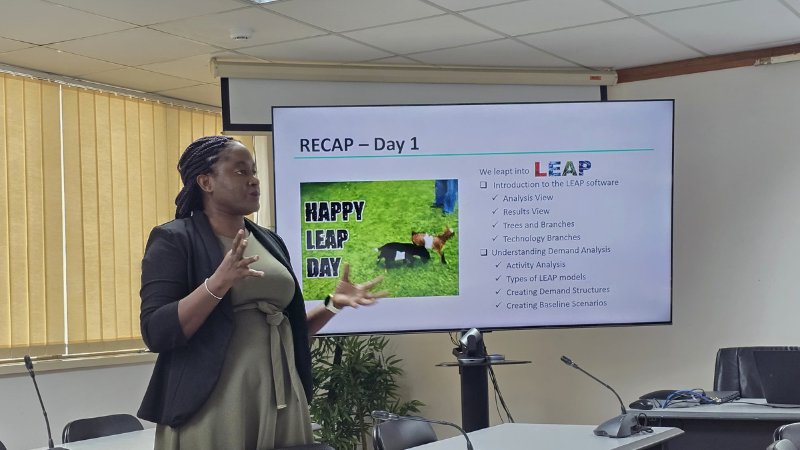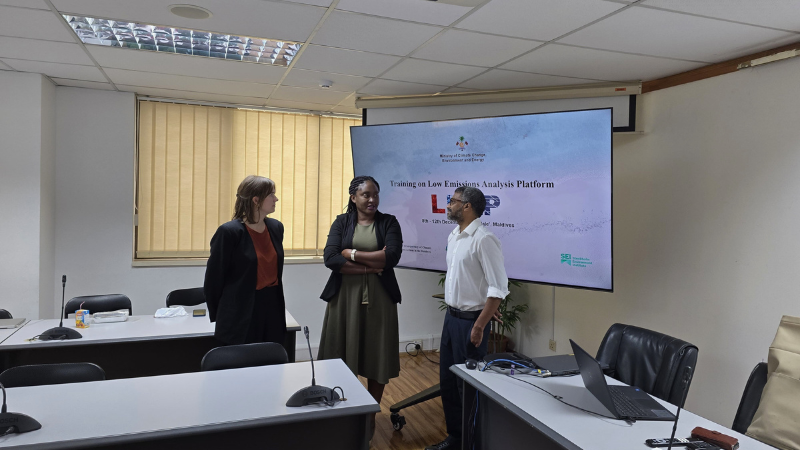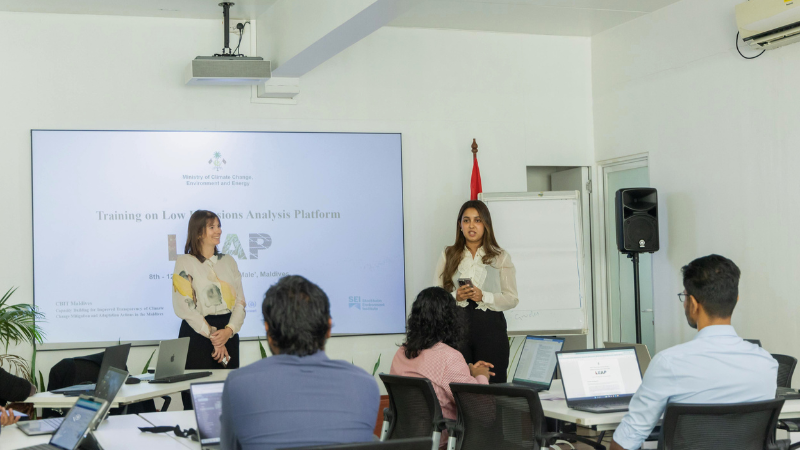The Ministry of Climate Change, Environment and Energy, in partnership with the Stockholm Environment Institute (SEI), successfully concluded a five-day training on the Low Emissions Analysis Platform (LEAP). This training, held from 8th – 12th December 2024, was a part of the Capacity Building for Improved Transparency of Climate Change Mitigation and Adaptation Actions in the Maldives (CBIT Maldives) project, funded by the Global Environment Facility (GEF) and executed by the Ministry, with implementation support from the United Nations Environment Programme (UN Environment).

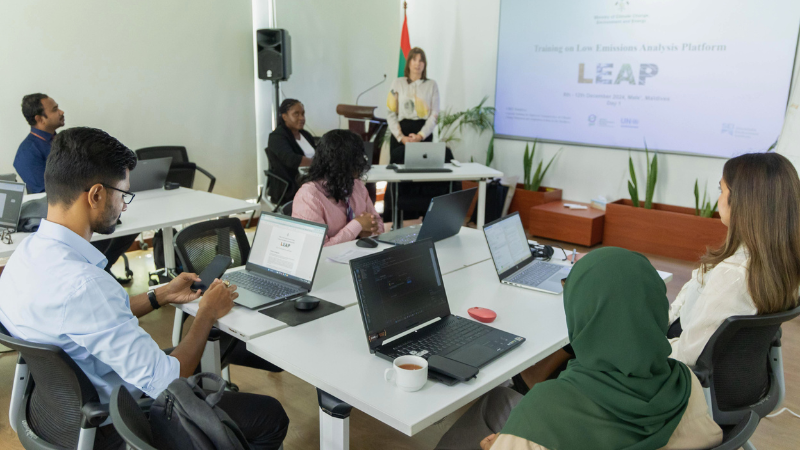
The LEAP training brought together key professionals and stakeholders, including energy planners, climate mitigation specialists, and technical experts from various sectors. Designed to strengthen the Maldives’ ability to track greenhouse gas (GHG) emissions and implement decarbonization strategies. The training covered essential elements of LEAP, including its user interface, energy demand and supply modeling, and cost-benefit analysis.
Dr. Charlotte Wagner of SEI and Benise Joseph from MRVHub/GHGMI led the sessions, which featured interactive exercises, software demonstrations, and scenario analysis tailored to the Maldives’ unique energy and climate context. Participants gained hands-on experience in creating and assessing long-term energy planning and mitigation scenarios. A total of 14 (7 male, 7 female) participants successfully completed the training.
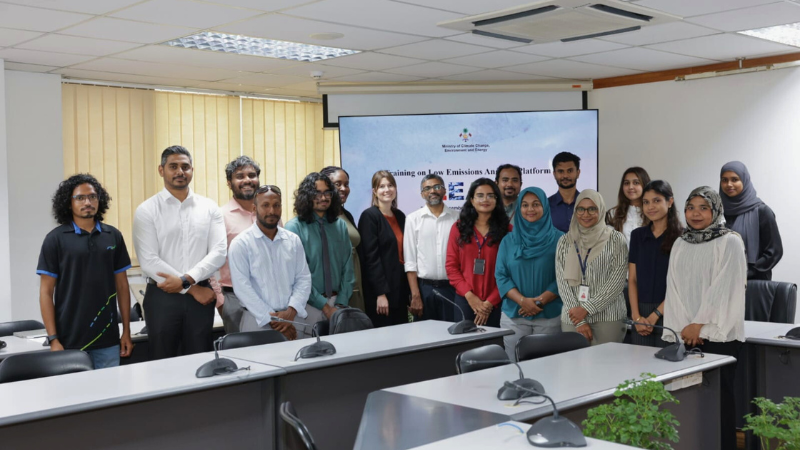
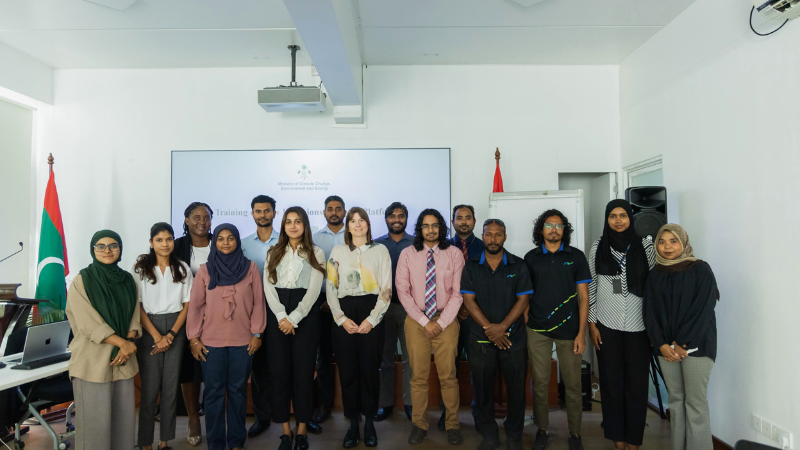
By aligning the Maldives’ transparency efforts in line with the Enhanced Transparency Framework (ETF) of the Paris Agreement, the CBIT Maldives project seeks to strengthen long-term institutional arrangements, systemize data collection and processing, and develop indicators and methodologies. Additionally, the project aims to improve overall data quality and management procedures for GHG inventories, mitigation and adaptation actions tracking, and climate finance, ensuring regular and transparent reporting to the United Nations Framework Convention on Climate Change (UNFCCC) process. These efforts will inform national decision-making processes and contribute to the effective management of climate change challenges.



